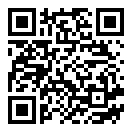Pages:
55-74
Receive Date: 2026/02/05
Accept Date: 2026/02/05
Abstract:
Although Farabi has not engaged in the issue of the critique of imagination, one can understand his stance by putting such questions to his works. The issue of the critique of imagination belongs to the realm of the philosophy of arts, and it is of strategic import for the development of the philosophy of Islamic arts to design such problems and try to find their solutions through the works of Muslim philosophers.
Farabi has theories about evaluating imagination on the basis of truth and falsity, beauty and ugliness, goodness and badness. He eventually appraises them by the criterion of human beatitude (sa‘ādat). The notion of truth and falsehood in imaginal forms differ from those in the realm of propositions. However, the arbitrator who judges about the beauty and truth of an imaginal form is the intellectual faculty, even in the sphere of imagination.
چکیده و کلیدواژه فارسی (Persian)
Title :صور خیال در ترازوى نقد از نگاه فارابى
Abstract:
فارابى اگرچه به نحو مدوّن و معنون وارد مسئله نقد خیال نشده است، امّا با عرضه این مسئله بر آثار وى مىتوان به نتایجى دست یافت. مسئله نقد خیال متعلّق به گستره فلسفه هنر مى باشد و اینگونه طرّاحى مسئله و تلاش براى حلّ آن، گامى در جهت توسعه فلسفه هنر اسلامى یا فلسفه هنر حکماى مسلمان است و از اهمیت راهبردى در تحلیل و نقد آثار هنرى برخوردار مى باشد. فارابى در نقد خیال با ملاکهاى صدق و کذب، زیبایى و زشتى، و خوبى و بدى داراى دیدگاه است و سرانجام همه این ملاکها را در ترازوى سعادت ارزیابى مىکند. البته مفهوم صدق و کذب معطوف به صور خیال با صدق و کذبِ ناظر به قضیه و خبر تفاوت اساسى دارد. داور و حکمکننده در مقام سنجش خیال با ملاکهاى زیبایى و سعادت، تنها قوّه ناطقه است و قواى خیالى صلاحیت این داورى را ندارند.
References:
- ـ افلاطون، دوره آثار، ترجمه محمدحسین لطفى، تهران، خوارزمى، 1355.
-
- ـ تفتازانى، سعدالدین، شرح المقاصد، تحقیق عبدالرحمن عمیره، بیروت، عالمالکتب، 1409ق.
-
- ـ سبحانى، جعفر، محاضرات فى الالهیات، تلخیص على ربّانى گلپایگانى، قم، مؤسسة النشر اسلامى، 1372.
-
- ـ طوسى، خواجه نصیرالدین، رساله آغاز و انجام، به کوشش ایرج افشار، تهران، دانشگاه تهران، 1335.
-
- ـ فارابى، ابونصر، آراء اهل المدینة الفاضلة، مقدمه و حواشى على بوملحم، بیروت، دارالهلال، 2003م.
-
- ـ ـــــ ، التعلیقات، تحقیق جعفر آلیاسین، تهران، حکمت، 1371.
-
- ـ ـــــ ، السیاسهالمدنیه، تصحیح و ترجمه حسن ملکشاهى، تهران، سروش، 1376.
-
- ـ ـــــ ، تحصیل السعادة و التنبیه على سبیل السعادة، ترجمه علىاکبر جابرى مقدم، قم، دارالهدى، 1384.
-
- ـ ـــــ ، تلخیص نوامیس افلاطون، بیروت، دارالاندلس، 1402ق.
-
- ـ ـــــ ، فصول المنتزعه، تصحیح و ترجمه حسن ملکشاهى، تهران، سروش، 1382.
-
- ـ ـــــ ، موسیقى کبیر، ترجمه آذرتاش آذرنوش، تهران، پژوهشگاه علوم انسانى و مطالعات فرهنگى، 1375.
-
- ـ کانت، ایمانوئل، نقد قوّه حکم، ترجمه عبدالکریم رشیدیان، چ سوم، تهران، نى، 1383.
-
- - Baumgarten, A., Aesthetica, Hildesheim Georg Holms Verlagsbuchhandlung, 1961.
-
- - Heidegger, M. Poetry, Language, Thaught, tr. A. Hofstadter, New York, Harper and Row, 1971.
-
- - Lacoste, J., L'idee de Beau, Paris, Lacoste, 1986.
-
- - Maritain, Jacques, The Responsibility of the Artist, Indiana University of notere dame, Bordas princton, 1960.
-
- - Shaftesbury, L. Philosophies of Art and Beauty, Chicago University Press, 1964.
Cite this article:
RIS
Mendeley
BibTeX
APA
MLA
HARVARD
VANCOUVER
APA | MLA | HARVARD | VANCOUVER
Maftouni, Nadia.(2026) Evaluating Imaginal Forms from Farabi’s Point of View. Ma`rifat Falsafi, 8(4), 55-74
APA | MLA | HARVARD | VANCOUVER
Nadia Maftouni."Evaluating Imaginal Forms from Farabi’s Point of View". Ma`rifat Falsafi, 8, 4, 2026, 55-74
APA | MLA | HARVARD | VANCOUVER
Maftouni, N.(2026) 'Evaluating Imaginal Forms from Farabi’s Point of View', Ma`rifat Falsafi, 8(4), pp. 55-74
APA | MLA | HARVARD | VANCOUVER
Maftouni, N. Evaluating Imaginal Forms from Farabi’s Point of View. Ma`rifat Falsafi, 2026; 8(4): 55-74










